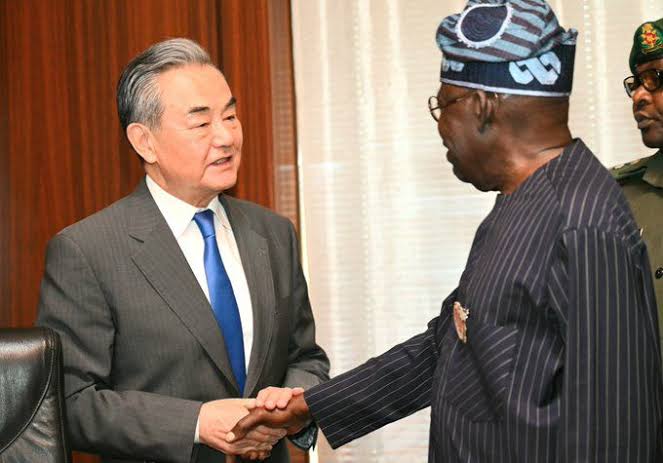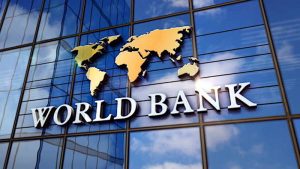
Nigeria and China have reached a preliminary agreement to expand the existing $2 billion (15 billion yuan) currency swap arrangement. The development followed discussions initiated by President Bola Ahmed Tinubu during the visit of Chinese Foreign Minister Wang Yi to the State House, Abuja, on Thursday.
The currency swap deal, first signed in 2018, allows trade transactions between the two nations to be conducted directly in the Chinese yuan and the Nigerian Naira, eliminating the need for a third currency.
President Tinubu emphasized the need to scale up the deal, citing its importance for Nigeria’s infrastructure development and broader bilateral relations. He also urged China to review its $50 billion aid package for Africa to better align with the continent’s development realities.
“The level you have approved for Nigeria is inadequate, considering our programmes. If you can increase that, it will be well appreciated,” Tinubu said.
He added, “The infrastructural needs of Africa are greater, and we want to move as rapidly as our counterparts. Africa values its relationship with China and seeks deeper collaboration for infrastructural development.”
Chinese Foreign Minister Wang Yi expressed optimism about the deal, indicating that the proposed expansion and the potential issuance of Panda bonds would enhance Nigeria’s financial capacity.
“We welcome Nigeria’s plan to issue Panda bonds. It will boost revenue, guarantee financial safety, and strengthen bilateral ties,” Wang said.
Yi also reaffirmed China’s commitment to Nigeria’s infrastructure development, highlighting the recent funding approval for Phase Three of Nigeria’s railway modernization project, including the Kano-Kaduna railway.
Tinubu also used the occasion to seek China’s support for Nigeria’s bid for a permanent seat on the United Nations Security Council.
“You are a member of the UN Security Council. We want you to use your influence to ensure Nigeria secures the seat,” Tinubu said.
The discussions with Wang Yi follow President Tinubu’s state visit to China in 2024 during the Forum on China-Africa Cooperation (FOCAC). During the visit, several Memorandums of Understanding (MOUs) were signed, focusing on energy, transportation, agriculture, and petrochemical development.
Tinubu reaffirmed Nigeria’s readiness to implement these agreements, adding that Mr. Joseph Tegbe had been appointed to oversee Nigeria-China relations and ensure the actualization of the MOUs.
China’s financial backing and infrastructure investments continue to play a pivotal role in Nigeria’s economic development, with the proposed currency swap expansion and Panda bonds offering strategic avenues to address the country’s fiscal challenges.








